"I dream of establishing a green belt around all cities and villages to help prevent land from turning into desert."
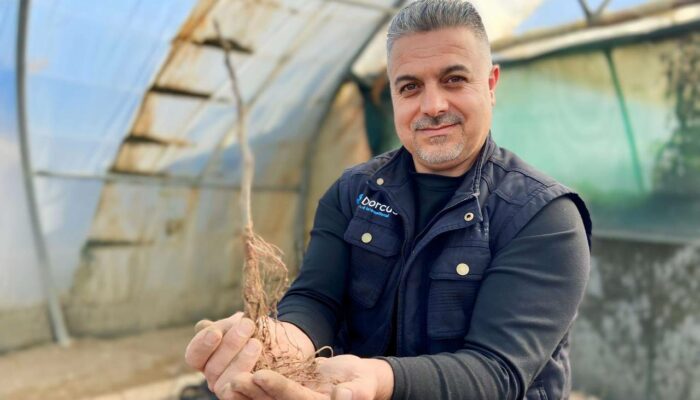
Can you tell something about the work that Dorcas is doing in Iraq?
FSL: We support people with emergency assistance, including in-kind support and cash via mobile money transfers (MMT), across different regions. Within this project, people get some sort of autonomy back over their lives. They can decide for themselves what they need most.
Nearly 13,000 people have received food security and livelihood assistance, including agricultural inputs like greenhouses, seeds, tools, irrigation systems, water tanks, water pumps, poultry, livestock fodder as well as cash-for-work opportunities, vocational training, and cash to support small businesses.
Protection: Thousands of project participants have received comprehensive protection support including legal aid assistance, cash assistance, psychosocial support (PSS), case management, vocational training, and referrals. Community centres and mobile teams brought protection services to remote areas, and community volunteers were trained to raise awareness, mobilise project participants, and monitor protection needs.
WASH: Nearly 200,000 project participants in the Sinjar District of Ninewa gained access to improved water and sanitation services through implemented WASH projects.
Vocational training: more than 200 unskilled individuals in the Sinjar and Ninawa region have received vocational training in construction.
Climate resilience: Dorcas Iraq is implementing a climate resilience project that began in January 2024 and will conclude at the end of December 2024. Through this initiative, Dorcas-Iraq aims to transform responses through community awareness raising and empowerment. Activities focus on increasing green cover, improving oxygen supply, reducing carbon emissions, and mitigating sandstorm impacts. There is also an opportunity to build long-term adaptive capacity at individual and system levels. Approaches that promote climate-resilient agricultural practices, diversification strategies, and disaster risk reduction can help households better withstand and bounce back from climate shocks and stresses -coordinating local communities to adopt skills and implement solutions at a broader scale over the long run. Meanwhile, the region’s young population indicates potential for building long-lasting adaptive capacities through targeted interventions. The project emphasizes training, awareness-raising, empowering people in vulnerable situations – involving government departments, local agriculture authorities, women, youth, and various community groups. The participatory stakeholder approach maximizes local ownership and promotes knowledge sharing for collective action.
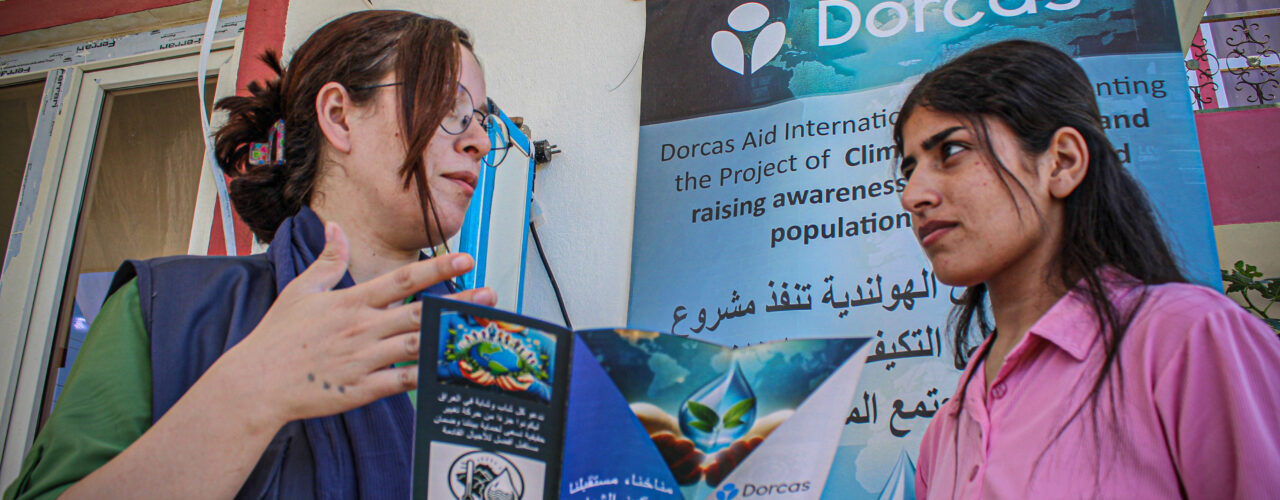
Why are the projects of Dorcas focused on climate (change) adaptation?
The consequences of climate change become more and more visible in Iraq – with all its consequences for the most vulnerable population. We have to deal with these changes, but we also want to fight it.
With our technical and professional expertise, as well as our effective presence, we are aware of the risks posed by climate change globally and specifically in Iraq. We understand the challenges people face if we do not take necessary actions to confront these changes and mitigate their effects, or at least prepare for them. Through our environmental projects, Dorcas aims to raise awareness among individuals and communities about the ongoing climate changes, their associated risks and strategies for addressing and mitigating these impacts. We also seek to enhance the capabilities of individuals, communities, and relevant government employees in building climate resilience. Additionally, we aim to introduce advanced agricultural technologies and methods and climate-resistant varieties to empower vulnerable communities, equipping them with the knowledge and tools they need for the present and future.
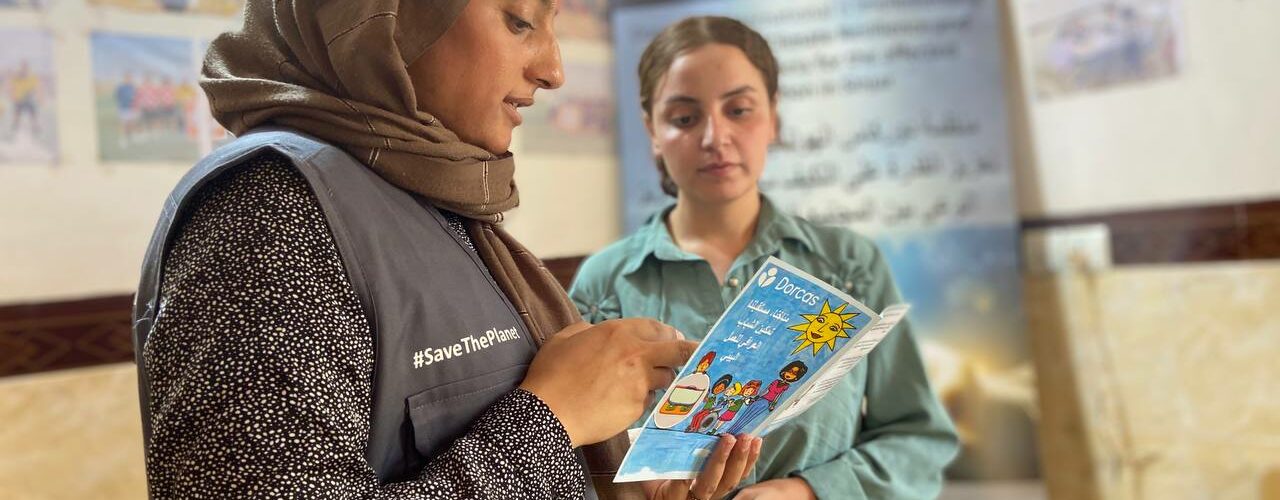
Who do you try to support?
We are targeting host communities, returnees, and internally displaced persons, focusing on people in vulnerable situations – particularly women, girls, and people with disabilities. Women and girls often face heightened vulnerability due to climate change, which can result in the loss of their original sources of income, this situation increases their risk of early marriage, gender-based violence, and school drop-out.
Do you already see the effects of the interventions?
Yes, as you know, we started our project at the beginning of this year. While the future impact of the project will be significantly greater, we have already received positive feedback about the interventions made. For example, during our visit to an area where people are using the new ‘Waterboxx’ technique in irrigation, we observed that trees have started to grow after previously planted trees in classical ways had dried. The communities and project participants positive response makes it easier for us to roll out this project in other communities as well.
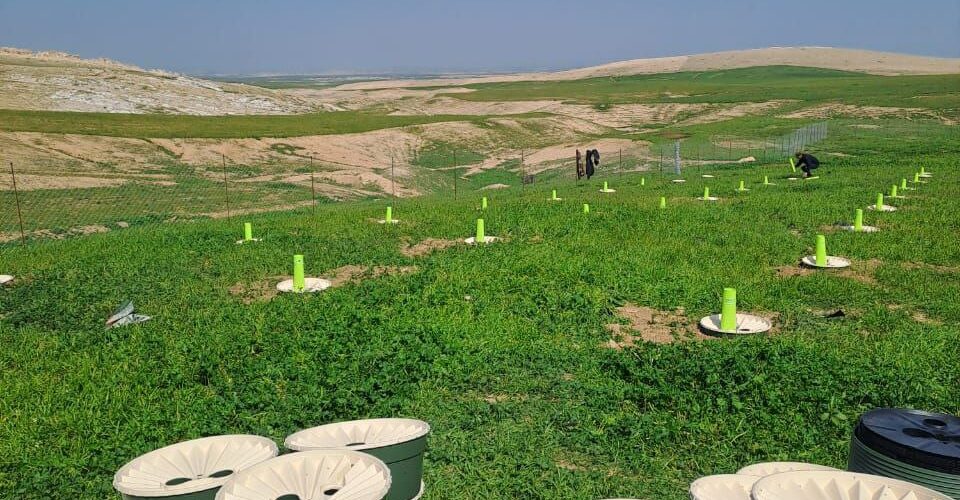
Are people willing to change?
Yes. To be honest, I did not expect such a positive reaction to our activities. During our visits to one village, people from neighboring villages would often ask when we would come to see them and how they could start using the Waterboxx themselves. Their eagerness was particularly evident after they saw the positive impact of our interventions.
Can you explain how the Waterboxx works?
Of course, I was already expecting this question. A Waterboxx is the newest technology in irrigation. It can hold 15 liters of water, enough to irrigate the tree for 1 month by penetrating through the rope at the bottom of the Waterboxx. This technology will save water up to 90% or more, with 30% faster growth compared with the water that farmers normally use for their trees to grow in other irrigation systems. It can be used in all topographical desert-, semi-desert, and mountain areas. The Waterboxx also protects the tree from direct sunlight, grazing by animals and freezing. Besides saving water, it helps the roots of the tree to grow deep in the soil in one year to 4-5 meters which makes the tree stronger in the future and will not need ‘man-made’ irrigation. The Waterboxx is made of durable plastic and can be reused ten times.
By using the Waterboxx, we can plant trees in any kind of environment. In this way we can replant the forest and expand the green areas throughout the whole country – even in areas where nobody thought to be able to grow anything. In this way we provide livelihood for families, and we try to fight desertification.
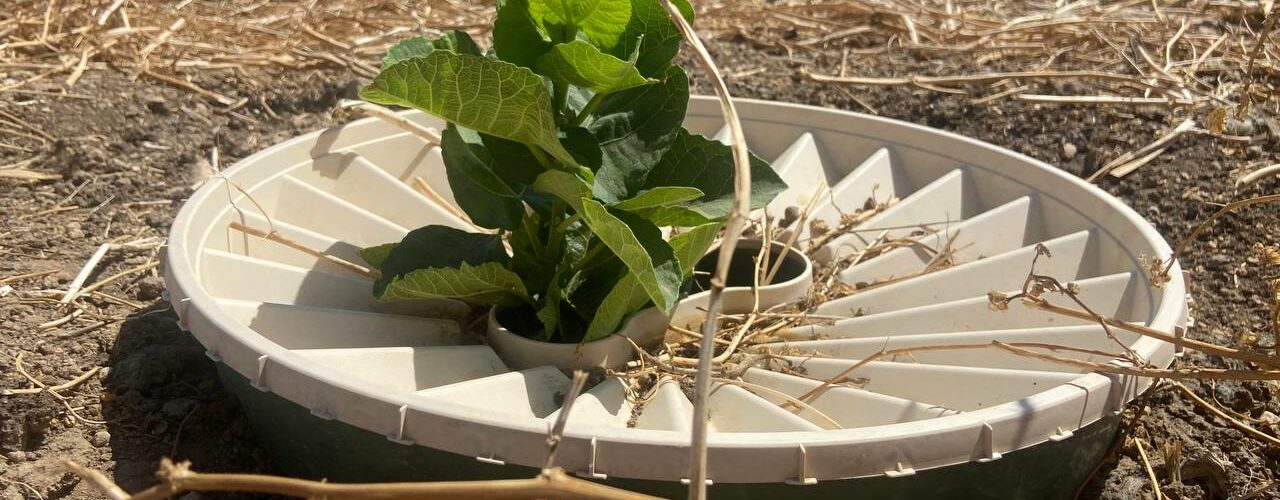
You just mentioned that the people you try to support lost everything. How did people lose all their belongings?
Many people lost everything – livelihoods, agricultural assets, and water sources during the conflict in 2014. With support from NGOs, some recovery had been possible. However, the impact of climate change has made the situation even more complex, especially for those living in dry areas. Iraq faces a number of climate change phenomena; including changing rainfall patterns, reduced rainfall, flooding, desertification, and rising temperatures. In addition, the unfair sharing of surface water from neighboring countries such as Iran and Turkey exacerbate these challenges, further threatening livelihoods. In many of the areas where we work, farmers are now forced to dig deeper to access groundwater. Previously, the average depth of wells was between 75 and 100 meters. Now, many must dig up to 300 meters to access water. This situation has a major impact on the agricultural sector, as water shortages severely hamper agricultural production and sustainability.
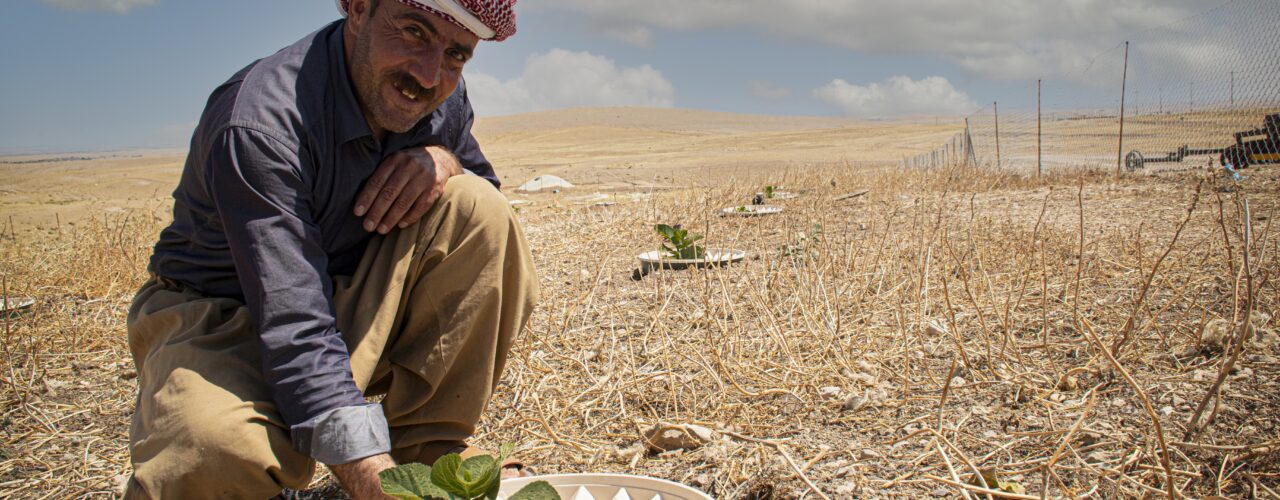
How do you try to involve local communities and the government in your projects?
All the programs are designed based on direct contact with the targeted communities. Feedback from government related directorates, project participants, farmers, FGDs, and community members was actively sought through field visits, accountability channels, consultations, workshops, and surveys. These stakeholders were invited to share their experiences, challenges they faced, and aspirations in their areas. This approach created a platform for participants to express their concerns about the situation and ensure that the program addresses the community’s most pressing needs. Through these channels, community members provided valuable insights that helped design of the projects, and shaped the project’s objectives and activities, highlighting the significance of sustainable solutions, resource management, and capacity-building training tailored to local contexts.
What are the biggest challenges in this project?
We face several challenges, including a lack of financial support for environmental projects and difficulties in obtaining funding. Although we see a large group of people willing to change, there is also a lack of awareness about climate change among communities, along with insufficient interest and support from the state for environmental issues. Furthermore, the security situation can become tense at times, adding to these challenges.
What are you proud of?
We are proud to have started this project, and I am especially proud of Dorcas for making the activities possible, which have made a meaningful difference in people’s lives. Additionally, I am proud of myself, as I am supporting vulnerable people and changing their lives for the better.
I hope that more people become aware of the work we are doing and the positive impact we can have in the community. Additionally, I hope we secure more funding to implement long-term projects, allowing us to improve the lives of many more people.
We hope that not only Dorcas, but also other NGOs, farmers, authorities, and governments will adopt our initiatives. I dream of establishing a green belt around all cities and villages to help prevent land from turning into desert. We hope to have good funds to expand our projects and activities.
Do you want to know more about the work that Dorcas is doing in Iraq? Click here.
Date: 12th of November 2024
Author: Marianne van Elst-Sijtsma
